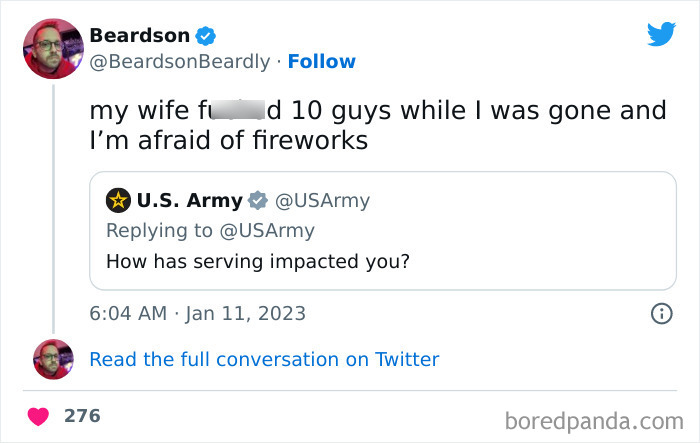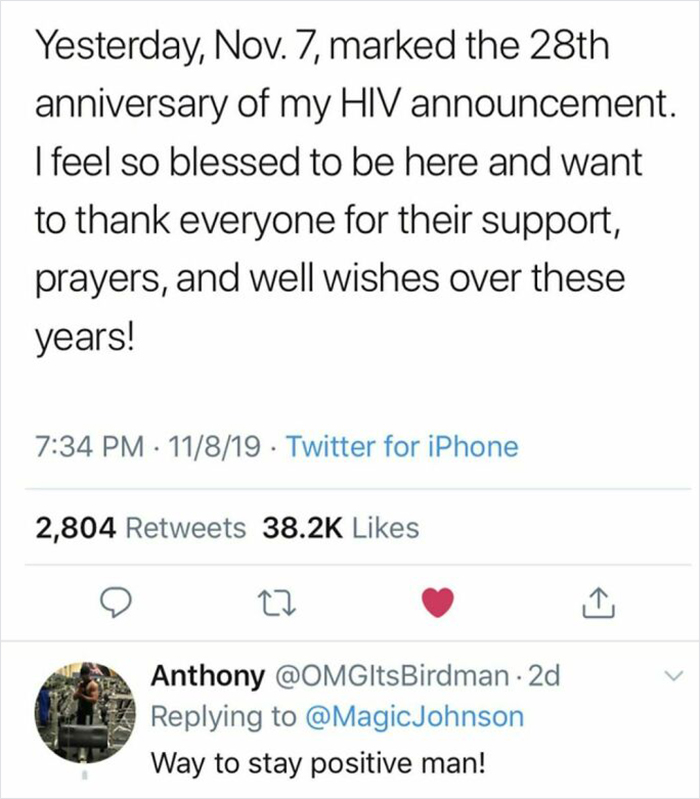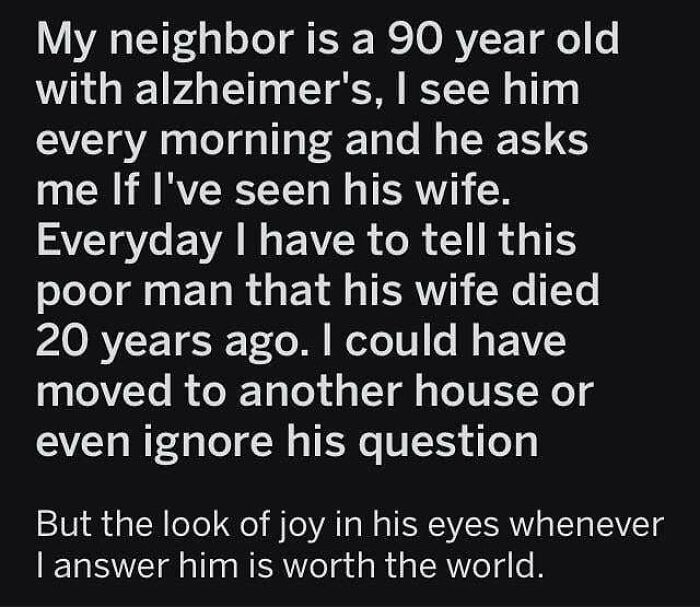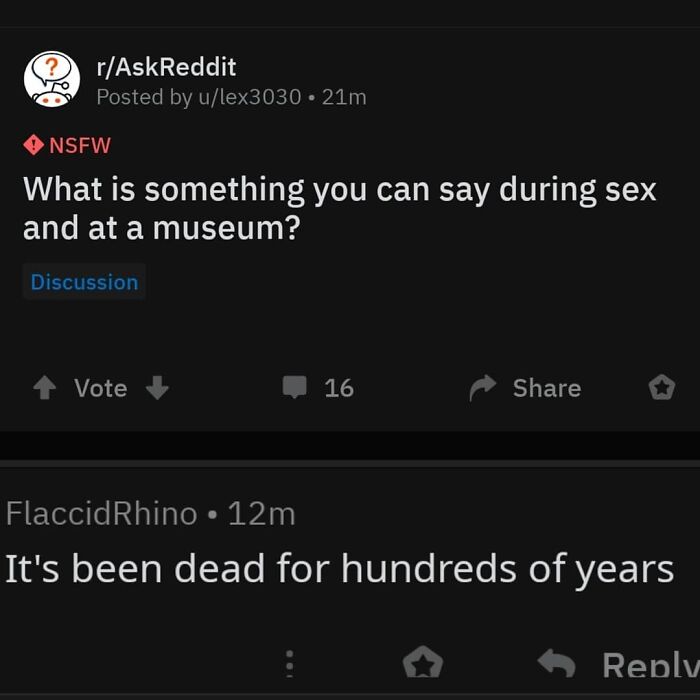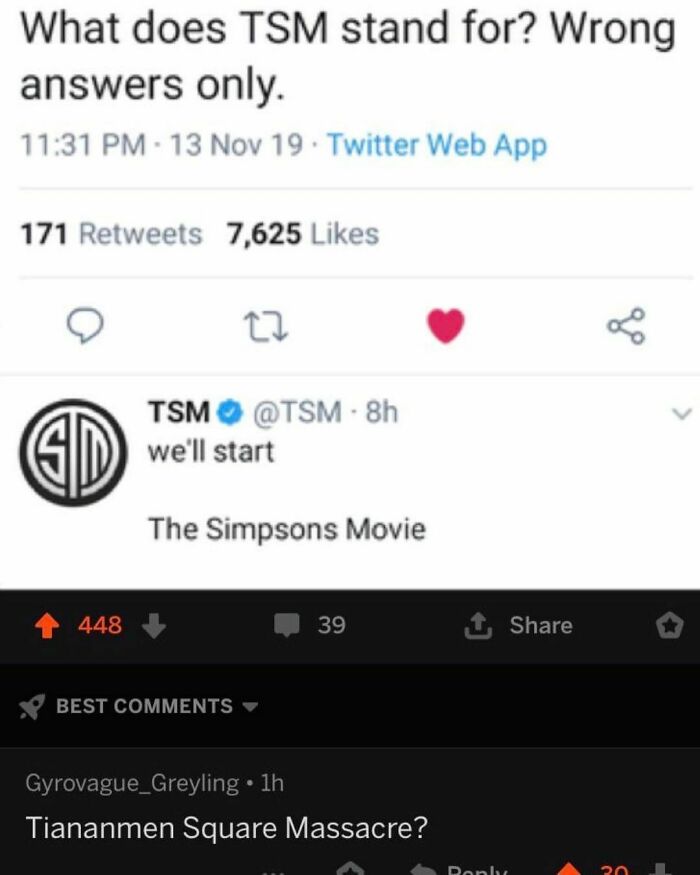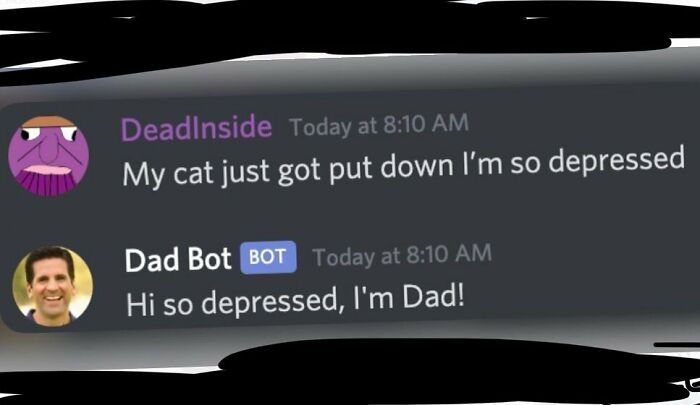The internet is a gift that keeps on giving. The sheer amount of content it holds means that there ought to be a little something for everyone there, no matter the topic or format. Quite a few internet users would likely agree that the comment section contains some of the most amusing examples of online activity. Especially for dark humor enthusiasts who can find an abundance of what can only be called “cursed” comments to giggle at.
Luckily for those who enjoy such type of content, the internet provides plenty of sources to find it, such as the ‘Cursed Comments’ Instagram account, for instance. Dedicated to grim humor, it boasts quite an impressive collection of people’s remarks that might make you feel bad for laughing. Scroll down to view some of their best examples on the list below.
#1
Image credits: FaithKMoore
#2
Image credits: angryaussie
#3
Image credits: cursed_comments
The exact amount of content online is difficult to determine, though Statista estimated that back in 2020, it was roughly 64.2 zettabytes. Such mind-boggling numbers mean there must be quite a few comments out there as well, as Media Engagement’s survey shows that 55% of Americans have left commentary on the internet at least once while browsing.
It also revealed that roughly 78% have spent some time reading the comments, some of which, as you can see on the list, can get pretty wild. It might be related to the fact that nearly 67% of those surveyed believe anonymity in the comment sections allows users to share ideas they might be reluctant to express otherwise.
#4
Image credits: cursed_comments
#5
Image credits: BeardsonBeardly
Whether anonymously or not, quite a few people use the comment section to express their wit and a rather dark sense of humor. Even though the latter might seem completely unacceptable to some—online or in real life—others appreciate people’s ability to look at taboo subjects in a rather lighthearted way.
Research on cognitive and emotional demands of dark humor processing revealed that people who enjoy such a sense of humor tend to show higher levels of intelligence than those who oppose it.
#6
Image credits: cursed_comments
#7
Image credits: cursed_comments
#8
Image credits: cursed_comments
Published in the ‘Cognitive Processing’ journal, the research was carried out by having 156 adults rate dark humor cartoons and conducting measurements of three factors: intelligence, mood disturbance, and aggressiveness.
The results pointed out that those inclined to a dark sense of humor showed the highest values in regards to intelligence, and lowest ones regarding mood disturbance and aggression. People less in favor of dark humor showed average intelligence scores and high mood disturbance as well as high levels of aggressiveness.
#9
Image credits: cursed_comments
#10
Image credits: cursed_comments
#11
Image credits: cursed_comments
It might not be easy to explain why we laugh at jokes based on all kinds of horrible situations, but there are some theories regarding the matter. Psychological Science covered an idea proposed by behavioral scientist Peter McGraw and his colleagues, known as the “benign-violation theory”.
It is based on people being amused by certain moral violations, such as threats to their beliefs or disparaging statements, as long as the violations are harmless. If the tone that is used to present the threat is playful rather than menacing, it evokes laughter rather than fear or sadness.
#12
Image credits: cursed_comments
#13
Image credits: cursed_comments
#14
Image credits: cursed_comments
Based on the theory, the thing that separates a threat from a joke is psychological distance, which comes in four varieties: spatial, social, temporal, and mental. For example, a joke based on something that occurred far far away (the spatial variety) might not seem as harsh as one based on something happening nearby. Similarly, something might not seem funny if it’s related to someone you know (social), if it happened yesterday instead of years ago (temporal), or if it is based on real events rather than a hypothetical scenario in your head (mental).
The theory suggests that whether the joke is going to be a success or not depends on the combination of moral threat, emotional safety, and psychological distance.
#15
Image credits: cursed_comments
#16
Image credits: cursed_comments
#17
Image credits: cursed_comments
In subsequent research, McGraw revealed that the extent of psychological distance that is required for a joke to be funny depends on the gravity of the situation it is based on. One of the ways researchers tried proving the hypothesis was asking a number of people which scenario they were more likely to find funnier—being hit by a car five years ago or yesterday. 99% of those surveyed chose the former.
#18
Image credits: cursed_comments
#19
Image credits: cursed_comments
#20
Image credits: cursed_comments
Psychological distance might be one of the reasons why some people find dark humor funnier than others. It only makes sense that a person somehow linked to certain unfortunate events won’t find humor based on them very funny. And understandably so; laughing at heartbreak-related jokes, for instance, might be pretty difficult if you had yours broken two days ago.
#21
Image credits: cursed_comments
#22
Image credits: cursed_comments
#23
Image credits: cursed_comments
Whether it’s grim or more lighthearted, humor can help people deal with difficult times. The American Institute of Stress revealed that processing humor is a brain activity related to wit, mirth, and laughter—cognitive, emotional, and physiological responses respectively. It pointed out that focusing on them, by doing laughter yoga, for instance, can help minimize anger and anxiety or reduce the pressure and tension caused by stress.
#24
Image credits: cursed_comments
#25
Image credits: Charliepfc97
#26
Image credits: cursed_comments
If you enjoyed the type of humor in these cursed comments, click here to find more of a similar kind; or browse the lists of disturbing images here and here for more cursed content.
#27
Image credits: cursed_comments
#28
Image credits: cursed_comments
#29
Image credits: cursed_comments
#30
Image credits: cursed_comments
Go to Source
Author: Rugilė Žemaitytė




